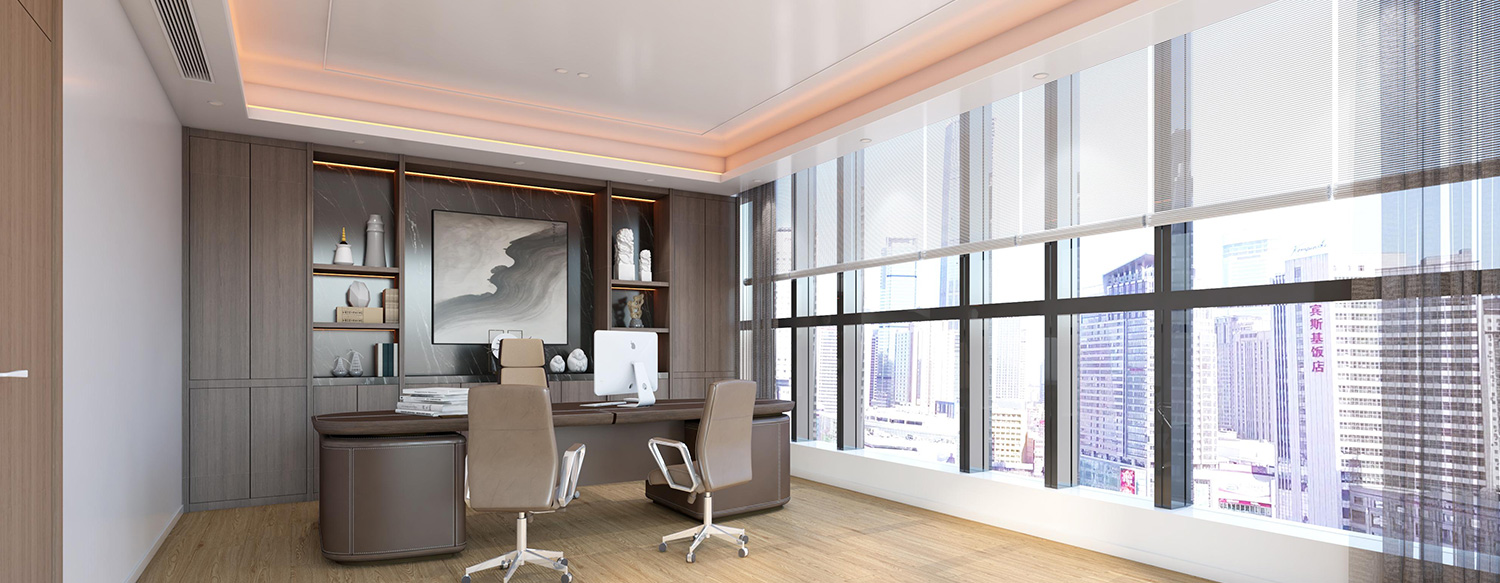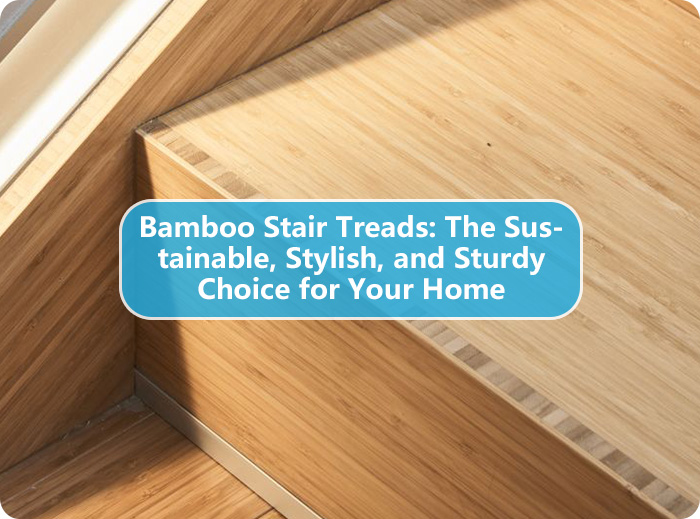In home design, stair treads often go unnoticed, but they play a crucial role in both aesthetics and functionality. Whether you’re building new stairs or upgrading old ones, the material you choose for stair treads can have a significant impact on the look, feel, and durability of your staircase. Bamboo stair treads are an increasingly popular option among homeowners and designers for their unique blend of sustainability, strength, and modern style. In this blog, we’ll dive deep into what makes bamboo stair treads an excellent choice, the pros and cons, and real-life feedback from users who’ve installed them in their homes.
What Are Bamboo Stair Treads?
Bamboo stair treads are the horizontal part of the staircase where you step, made from bamboo instead of traditional hardwoods like oak, maple, or pine. Bamboo, a fast-growing grass, is harvested and processed into solid panels or engineered boards, which are then cut and shaped into stair treads.
Bamboo’s inherent strength, combined with its unique, natural beauty, has made it a popular material for a wide variety of home applications, including flooring, furniture, countertops, and now stair treads. It provides an eco-friendly alternative to hardwood without sacrificing durability or style.
The Benefits of Bamboo Stair Treads
1. Eco-Friendly and Sustainable
Bamboo stair treads are among the most sustainable options available. Bamboo is one of the fastest-growing plants in the world, reaching maturity in just three to five years. Unlike trees, which can take decades to grow, bamboo can be harvested without killing the plant, allowing it to regrow continuously.
For homeowners who prioritize environmental responsibility, bamboo is a great choice. Many manufacturers source bamboo from responsibly managed farms, and the processing methods used to turn bamboo into durable panels are often less energy-intensive than those required for traditional hardwood.
2. Durability and Strength
Despite being classified as a grass, bamboo is incredibly strong. When processed into panels, it creates a dense, durable material that can rival or even exceed the strength of some hardwoods. Strand-woven bamboo, a type of bamboo made by compressing strands under high pressure, is especially durable and resistant to wear.
For stair treads, which see frequent foot traffic, this durability is essential. Bamboo stair treads are resistant to dents, scratches, and cracking, making them an excellent choice for households with children, pets, or heavy daily use. Bamboo’s strength also helps it maintain its appearance over time, even in high-traffic areas like staircases.
3. Modern and Natural Aesthetic
Bamboo’s unique grain pattern and natural light color give it a modern, clean look that complements a variety of interior design styles. Its fine, smooth texture and soft golden hues create a fresh, contemporary vibe, perfect for minimalist or Scandinavian design.
That said, bamboo stair treads also pair well with more rustic or traditional interiors. The natural beauty of bamboo, with its subtle grain and organic feel, brings warmth to any space. Additionally, bamboo stair treads can be stained or carbonized to achieve darker tones, allowing for a greater range of design possibilities.
4. Affordability
Compared to premium hardwoods like oak, cherry, or walnut, bamboo stair treads tend to be more affordable. Bamboo is widely available, and its fast-growing nature makes it less expensive to harvest and process than slower-growing hardwoods.
For homeowners looking to upgrade their stairs without breaking the bank, bamboo stair treads offer an attractive balance between price and quality. They provide the aesthetic appeal of hardwood at a fraction of the cost, making them an ideal option for budget-conscious remodels.
5. Easy Installation and Maintenance
Bamboo stair treads are relatively lightweight and easy to install. They can be cut and fitted just like hardwood, and their light weight makes them easier to handle, especially for DIY installations. Whether you’re installing a floating staircase or fitting new treads over an existing staircase, bamboo is a versatile material that works with most installation methods.
In terms of maintenance, bamboo stair treads are low-maintenance. Regular sweeping or vacuuming will keep them free of dirt and debris, and occasional damp mopping will help maintain their shine. Like hardwood, bamboo can benefit from a protective finish, which can be reapplied every few years to keep the surface looking new.
The Drawbacks of Bamboo Stair Treads
1. Vulnerability to Water Damage
While bamboo is a durable material, it is not naturally water-resistant. Prolonged exposure to moisture can cause bamboo to swell, warp, or develop mold. This is particularly important to consider for stair treads, as staircases are often exposed to moisture from wet shoes or spills.
To prevent water damage, bamboo stair treads should be treated with a water-resistant sealant. Additionally, using rugs or mats on staircases can help protect the treads from moisture, especially in areas prone to high humidity or dampness.
2. Limited Scratch Resistance
Although bamboo is hard and durable, it is still susceptible to scratches, especially from sharp objects or heavy use. Stair treads are subject to constant foot traffic, which can lead to minor surface scratches over time, particularly in households with pets.
To mitigate this, homeowners can opt for a protective finish or coat that adds a layer of defense against scratching. Regular maintenance and the use of area rugs or stair runners can also help minimize wear and tear.
3. Requires Regular Maintenance
Like any natural material, bamboo requires regular maintenance to keep it looking its best. While bamboo stair treads are relatively low-maintenance, they do need to be cleaned regularly and treated with a protective finish to prevent moisture damage and surface wear.
Over time, the finish on bamboo stair treads may wear down, especially in high-traffic areas. Homeowners should be prepared to refinish the treads every few years to maintain their appearance and protect them from damage. This is especially important in busy households or commercial spaces where stairs see heavy daily use.
4. Inconsistent Quality
Not all bamboo stair treads are created equal. The quality of bamboo products can vary widely depending on the manufacturer, the species of bamboo used, and the manufacturing process. Some lower-quality bamboo treads may be more prone to damage or wear.
To avoid these issues, it’s important to choose a reputable manufacturer and ensure the bamboo is properly treated and finished. High-quality bamboo stair treads can provide long-lasting durability, while lower-quality options may not hold up as well over time.
Real-Life Feedback from Homeowners with Bamboo Stair Treads
Rebecca M., San Diego, CA: “We decided to use bamboo for our stair treads during our home remodel, and I couldn’t be happier with the result. The natural look fits perfectly with our modern aesthetic, and I love that it’s an eco-friendly choice. The stairs feel solid underfoot, and they’ve held up well even with our two kids running up and down all the time.”
Tom J., Portland, OR: “Bamboo stair treads were a great option for us because they were affordable and easy to install. We were able to stain them to match the rest of our home’s wood finishes, and they turned out beautifully. The only downside is that we had to refinish them after a couple of years because they started showing wear in high-traffic areas, but overall I’d say they’ve been a solid investment.”
Sarah L., Austin, TX: “We went with bamboo for our stairs because we’re trying to incorporate more eco-friendly materials into our home. They look stunning, and the golden color really brightens up our entryway. The only issue we’ve encountered is some minor scratching, but nothing a little refinishing can’t fix. I’d definitely recommend bamboo to anyone looking for a sustainable alternative to hardwood.”
Mark D., New York, NY: “I’ve had bamboo stair treads for about five years now, and they’ve held up surprisingly well. I was a little worried about moisture since we live in a humid area, but as long as we keep them dry and clean, they’ve stayed in great shape. They were also a lot cheaper than some of the other options we considered, so I feel like we got great value for money.”
Final Thoughts: Are Bamboo Stair Treads Right for You?
Bamboo stair treads offer a combination of sustainability, durability, and modern design that makes them an attractive choice for many homeowners. They’re an eco-friendly alternative to hardwood, provide a unique natural look, and are strong enough to withstand daily use. However, they do require regular maintenance to prevent moisture damage and surface wear.
If you’re looking for an affordable, stylish, and environmentally friendly material for your staircase, bamboo stair treads could be the perfect fit. Just be prepared to invest in a little upkeep to keep them looking their best.
Pros and Cons Recap:
Pros:
- Highly sustainable and eco-friendly
- Durable and resistant to wear when properly maintained
- Unique, modern aesthetic
- More affordable than hardwood options
- Easy to install and lightweight
Cons:
- Prone to water damage if not sealed
- Susceptible to surface scratches
- Requires regular maintenance and refinishing
- Quality varies by manufacturer
Bamboo stair treads are a fantastic option for eco-conscious homeowners who want to add natural beauty to their home without sacrificing durability. With proper care, they can last for years and provide a stylish, sustainable solution for your staircase.

